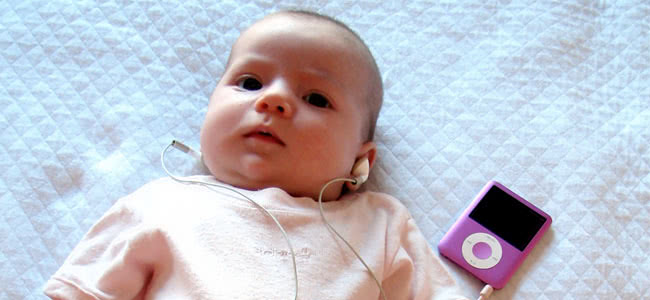There’s something about music that can inherently ease and relax you. Now, a Chicago hospital are taking this notion and applying it to premature babies with a heartwarming dose of music therapy.
Ann & Robert H. Lurie Children’s Hospital in Chicago are using music therapy for premature babies who suffer a range of problems such as immature lungs, eye disease, and sleep problems which affects the physical treatment due to their fragile, developing bodies; in lieu, medical practitioners have turned to off-hands musical treatment.
As Perth Now report, recent anecdotal research has shown that vibrations and the sound of music is beneficial in reducing stress in premature and ill babies. Doctors also praise music therapy’s ability to soothe and relax infants and create a bonding experience with the newborns and their parents.
Elizabeth Klinger, a music therapist at the Chicago hospital says, “what music therapy can uniquely provide is that passive listening experience that just encourages relaxation for the patient, encourages participation by the family.”
“A lot of times families become afraid of interacting with their children because they are so sick and so frail, and music provides them something that they can still do,” said Klinger.
Klinger herself plays acoustic guitar and her repertoire consists mainly of lullabies sung in both English and Spanish despite some families wanting rockier tunes. “A lot of times families become afraid of interacting with their children because they are so sick and so frail, and music provides them something that they can still do.” Elizabeth Klinger, Music Therapist
Lucy Morales and Alejandro Moran, parents of premature baby Augustin, have only praise for the therapeutic effects, noting that “the music relaxes him, it makes him feel more calm… and helps him sleep better too.” The results of research into the effects of music therapy confirm this, highlighting the importance of the performance being live as the premature babies benefit from feeling the vibrations and seeing the musician’s face.
Joanne Loewy, a music therapist who runs a music and medicine program at Beth Israel Medical Centre in New York, notes that the trend of music therapy for use in medical centres is on the rise. At least two dozen hospitals in the USA are now offering it in their intensive care wards for newborns.
Lowey led a study last month which was conducted in 11 US hospitals and found that the drum beats that matched the heart beat of newborns slowed down their heart rate, calmed their breathing, and improved sucking and sleeping.
Soozie Cotter-Schaufele, a music therapist at Advocate Children’s Hospital-Park Ridge near Chicago, plays a small harp or guitar for newborns. She has found through her own experiences that rhythmic music that mimic womb sounds can help calm a baby while they are undergoing medical procedures.
Adding even more credibly to the results, newborn specialist Dr. Natalia Henner at Lurie Children’s Hospital has said that music therapy “does help with promoting growth. And there’s some good literature… saying that the time to discharge is a little bit shorter in babies who’ve been exposed to more music therapy.”
Some medical insurers though are sceptical of these sorts of results, as they are unable to prove a direct link between music therapy and relaxation. Cotter-Schaufele however, has had plenty of testimonies on her work with premature babies.
She recently heard from a woman whose daughter was born prematurely at Advocate Children’s Hospital in Chicago six years ago. Cotter-Schaufele would play the 1960 folk song “Today” for her, and now her mother says her daughter “still loves that song… She didn’t learn that song from me, she learned it from [her].”


































